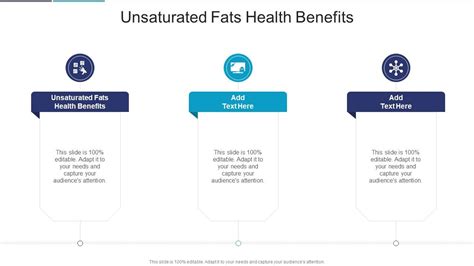How does dietary fat intake, specifically the ratio of saturated to unsaturated fats, impact testosterone levels in adult men?

Introduction: The Hormonal Link to Dietary Fats
Testosterone, often dubbed the primary male sex hormone, plays a crucial role in various aspects of men’s health, including muscle mass, bone density, mood regulation, and sexual function. Maintaining optimal testosterone levels is vital for overall well-being. While genetics, age, and lifestyle factors like exercise and sleep profoundly influence these levels, diet stands as a modifiable factor with significant impact. Among dietary components, fat intake has emerged as a key player, sparking considerable research and discussion.
This article delves into the intricate connection between dietary fats and testosterone, with a particular focus on how the ratio of saturated to unsaturated fats might influence hormonal balance in adult men. Understanding this relationship can empower individuals to make informed dietary choices for better hormonal health.

The Fundamental Role of Fats in Hormone Production
Before examining the specific types of fats, it’s important to recognize that dietary fat, in general, is essential for hormone production. Cholesterol, derived from fats in the diet or synthesized by the body, serves as the precursor for all steroid hormones, including testosterone. Therefore, an adequate intake of healthy fats is non-negotiable for proper endocrine function.
However, not all fats are created equal. The type of fat consumed – saturated, monounsaturated, or polyunsaturated – and their relative proportions can significantly impact the complex enzymatic pathways involved in testosterone synthesis and metabolism.
Saturated Fats: Friend or Foe for Testosterone?
For decades, saturated fats (SFAs), found in foods like red meat, butter, and coconut oil, have been viewed with caution due to their association with cardiovascular disease. However, their role in testosterone production presents a more nuanced picture. Some research suggests that a diet higher in saturated fat might correlate with higher testosterone levels. The proposed mechanisms include increased availability of cholesterol (the precursor), alterations in cellular membrane fluidity, or changes in the activity of enzymes involved in steroidogenesis.
Conversely, other studies indicate that an excessive intake of saturated fats, especially in conjunction with an overall unhealthy diet, could lead to adverse health outcomes that indirectly affect hormone balance. It’s crucial to consider the broader dietary context rather than isolating saturated fat intake alone.

Unsaturated Fats: The Mediterranean Advantage
Monounsaturated Fats (MUFAs)
Monounsaturated fats (MUFAs), abundant in olive oil, avocados, and nuts, are widely recognized for their heart-healthy benefits. Research has consistently shown a positive correlation between MUFA intake and healthy testosterone levels. These fats are thought to improve insulin sensitivity, reduce inflammation, and positively influence lipid profiles, all of which can indirectly support optimal hormone production.
Polyunsaturated Fats (PUFAs)
Polyunsaturated fats (PUFAs) include omega-3 fatty acids (found in fatty fish, flaxseeds) and omega-6 fatty acids (found in vegetable oils, nuts). Both are essential, meaning the body cannot produce them and they must be obtained through diet. Omega-3s, in particular, are celebrated for their anti-inflammatory properties and role in cell membrane health, which can be beneficial for testicular function and hormone synthesis. While omega-6s are also essential, an imbalanced ratio (too many omega-6s relative to omega-3s) can promote inflammation, potentially having a negative impact on overall health and, consequently, hormonal balance.

The Crucial Saturated to Unsaturated Fat Ratio
The most compelling evidence suggests that it’s not merely the absolute quantity of saturated or unsaturated fat, but rather their ratio within the diet that significantly influences testosterone levels. Diets that prioritize healthy unsaturated fats while maintaining a moderate, rather than excessive, intake of saturated fats appear to be most beneficial.
Studies have indicated that diets higher in monounsaturated fats and lower in polyunsaturated fats (especially omega-6s) may be associated with higher testosterone. Other research points to a balanced intake of all fat types, emphasizing quality sources over quantity alone. For instance, replacing unhealthy trans fats and excessive refined vegetable oils (high in omega-6) with sources of MUFAs and omega-3s seems to foster a more favorable hormonal environment.

Practical Dietary Recommendations for Optimizing Testosterone
Based on current research, adult men looking to support healthy testosterone levels through diet can consider the following:
- Emphasize Whole, Unprocessed Foods: Focus on a diet rich in whole foods, including lean proteins, a variety of vegetables and fruits, and complex carbohydrates.
- Include Healthy Fat Sources: Prioritize sources of monounsaturated fats like olive oil, avocados, nuts, and seeds. Incorporate omega-3 rich foods such as fatty fish (salmon, mackerel, sardines), flaxseeds, and walnuts.
- Moderate Saturated Fat Intake: While some saturated fat is necessary, avoid excessive amounts. Choose lean cuts of meat and full-fat dairy in moderation.
- Balance Omega-3 and Omega-6: Aim for a healthier balance by reducing intake of highly processed foods and refined vegetable oils (e.g., soybean, corn oil) which are high in omega-6, and increasing omega-3 intake.
- Avoid Trans Fats: Eliminate artificial trans fats entirely, as they are detrimental to overall health and have no known benefits.
Conclusion
The relationship between dietary fat intake, particularly the ratio of saturated to unsaturated fats, and testosterone levels in adult men is multifaceted and dynamic. While some saturated fat appears beneficial for testosterone production, an overall dietary pattern that emphasizes monounsaturated and omega-3 polyunsaturated fats, with a moderate intake of saturated fats, is generally associated with better hormonal health. It’s not about demonizing one type of fat but rather understanding the synergy and balance required for optimal physiological function. A balanced, whole-food diet rich in diverse healthy fats remains a cornerstone of maintaining robust testosterone levels and overall well-being.









